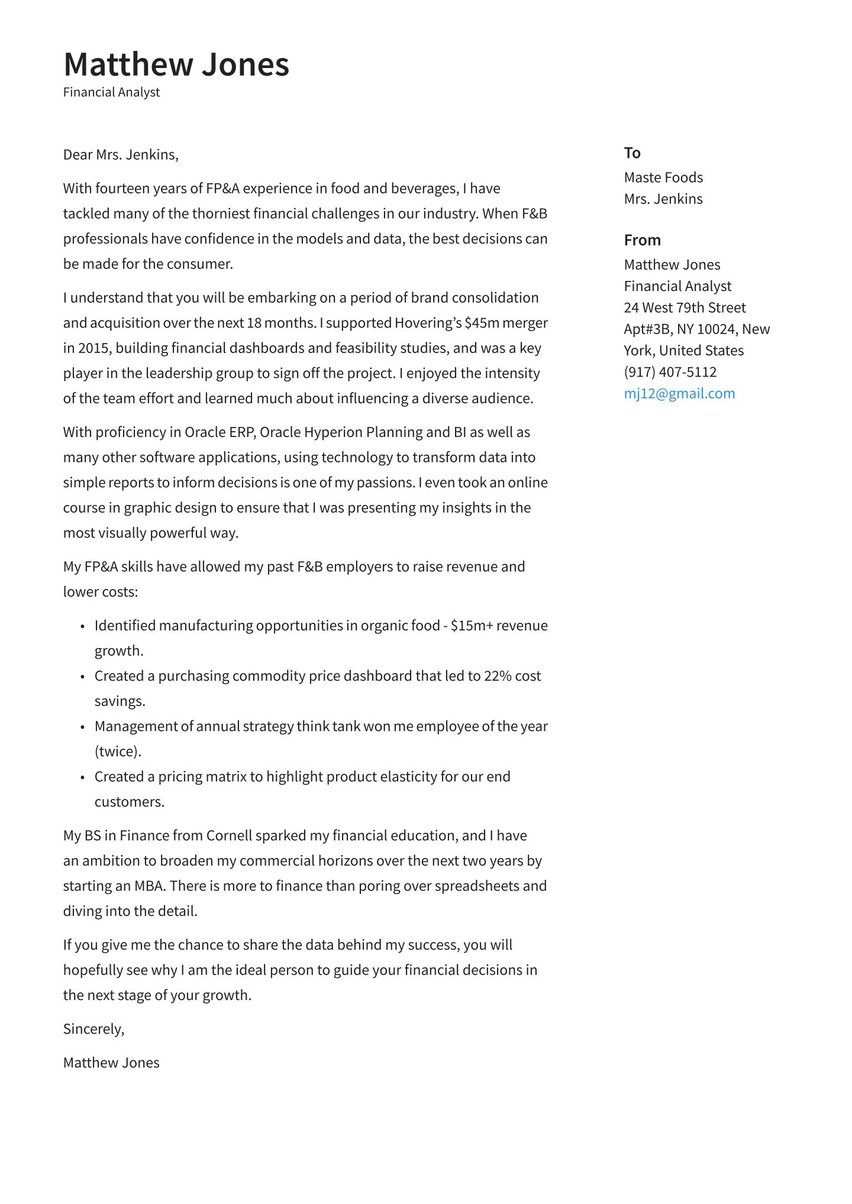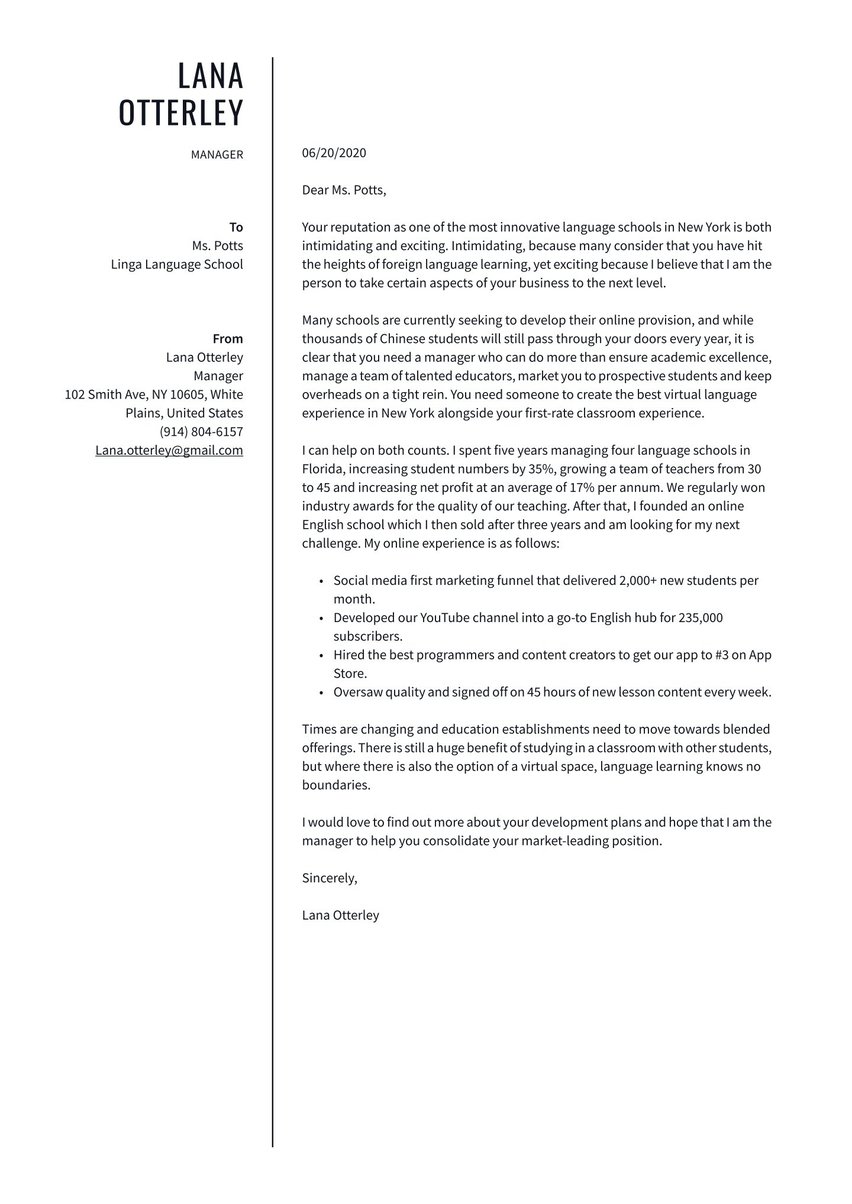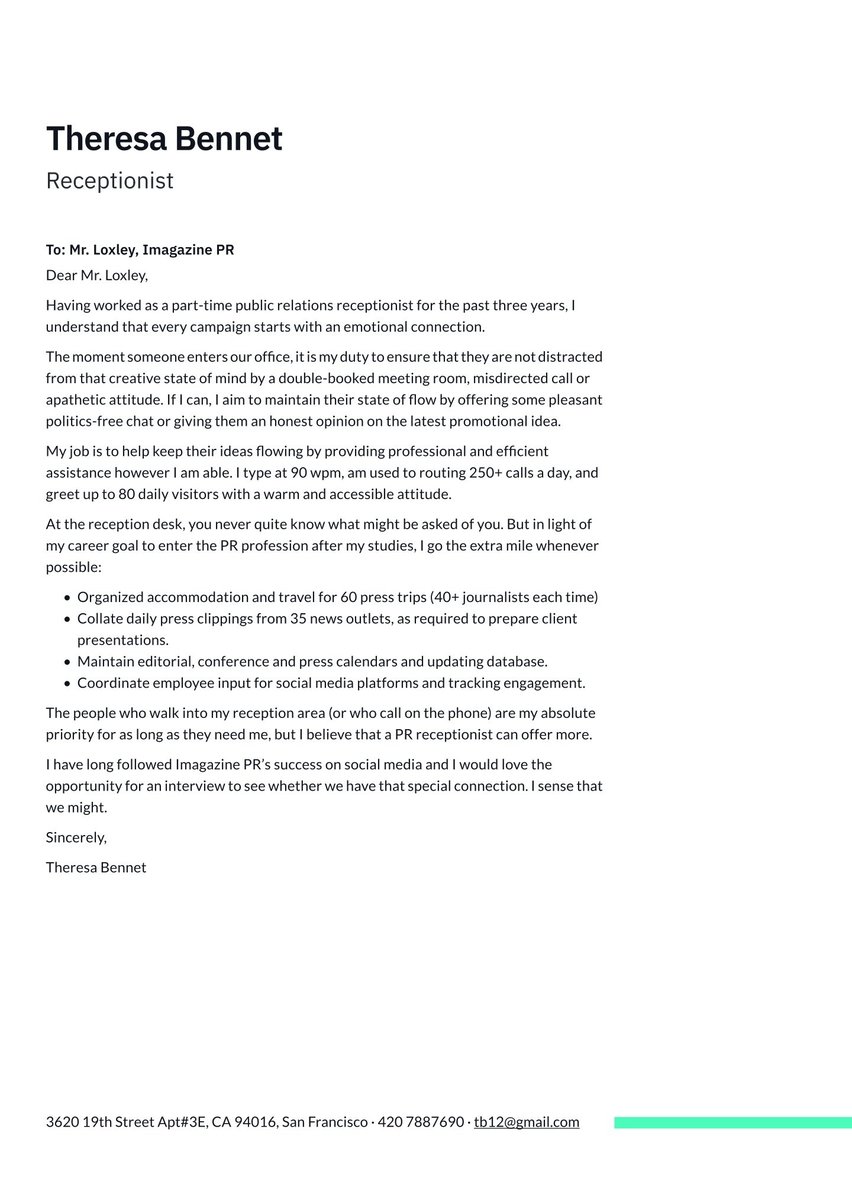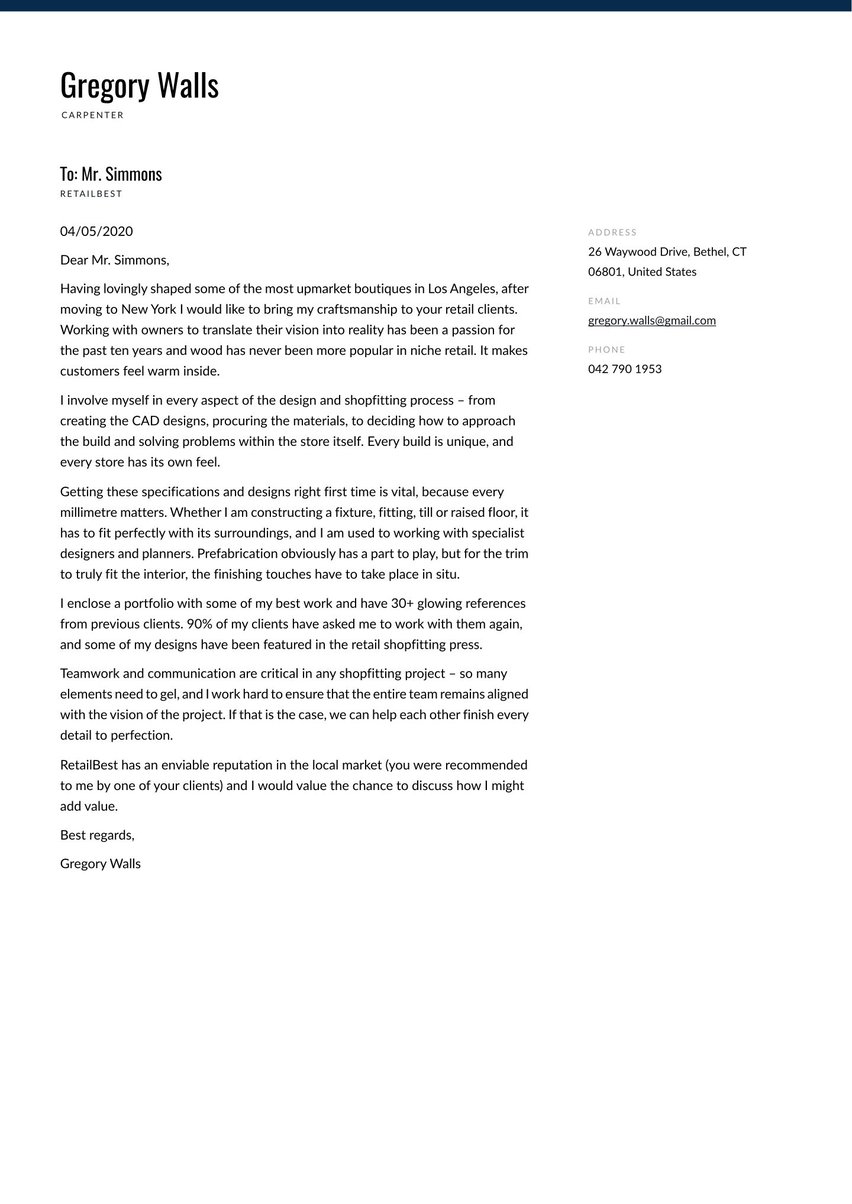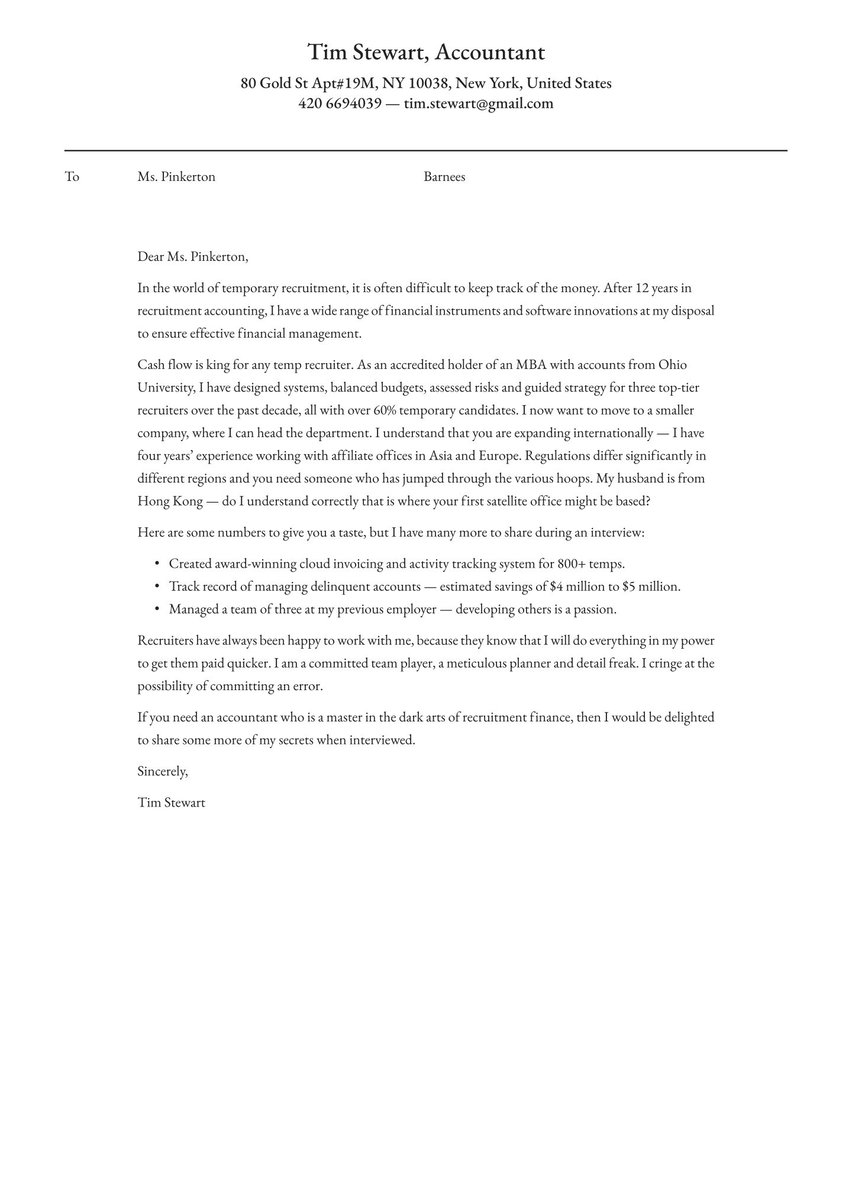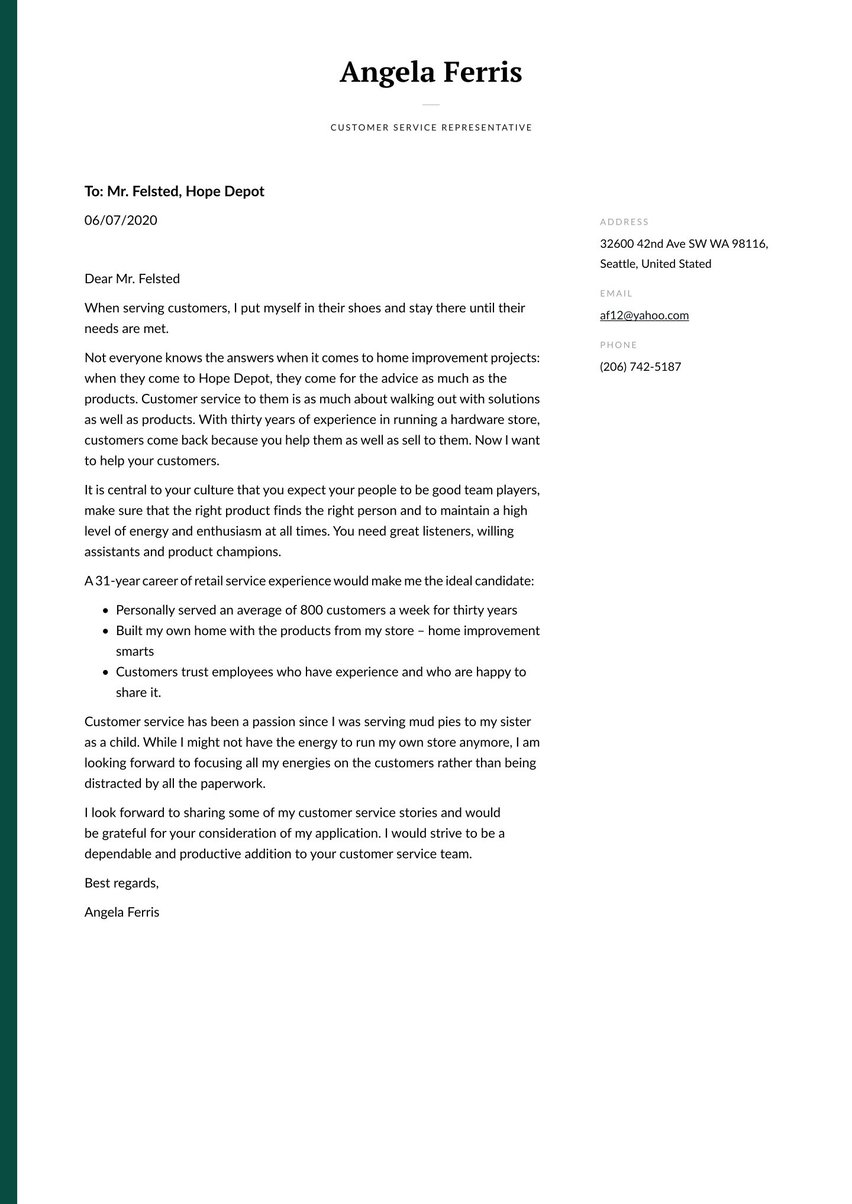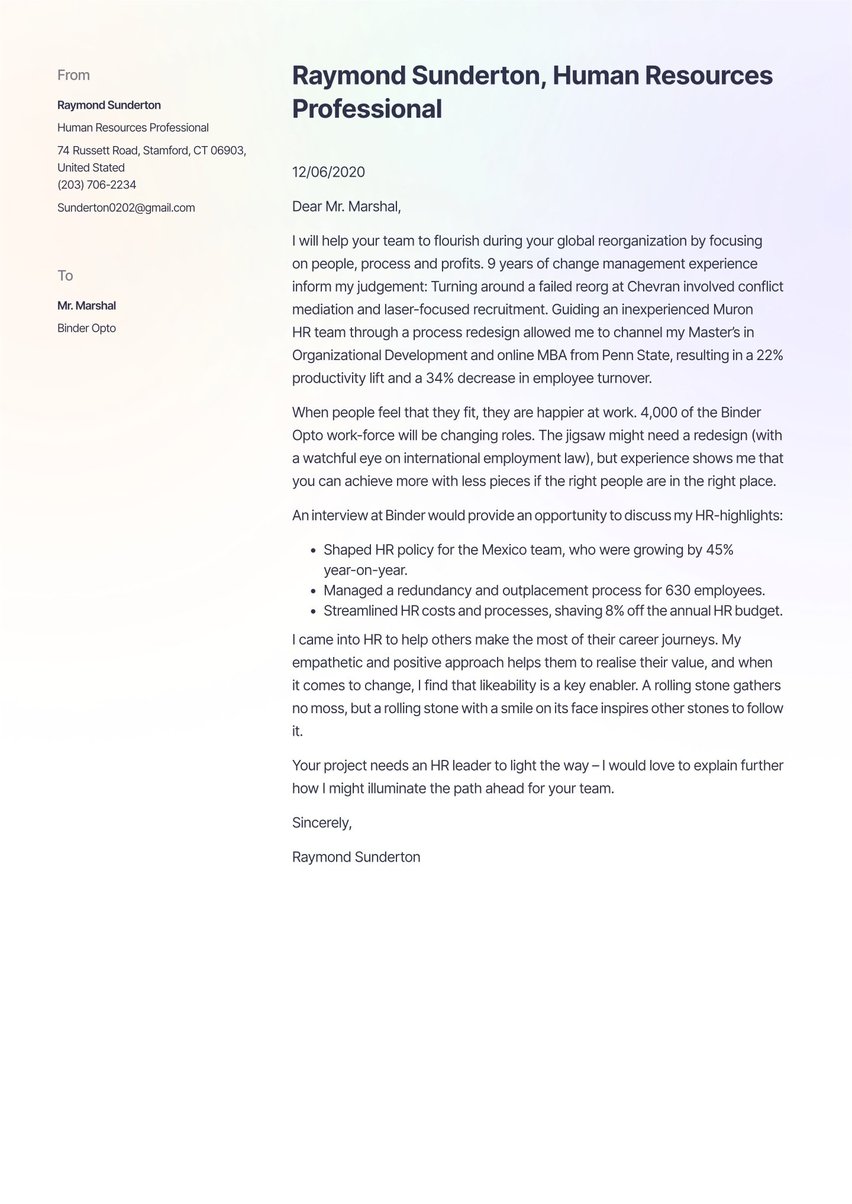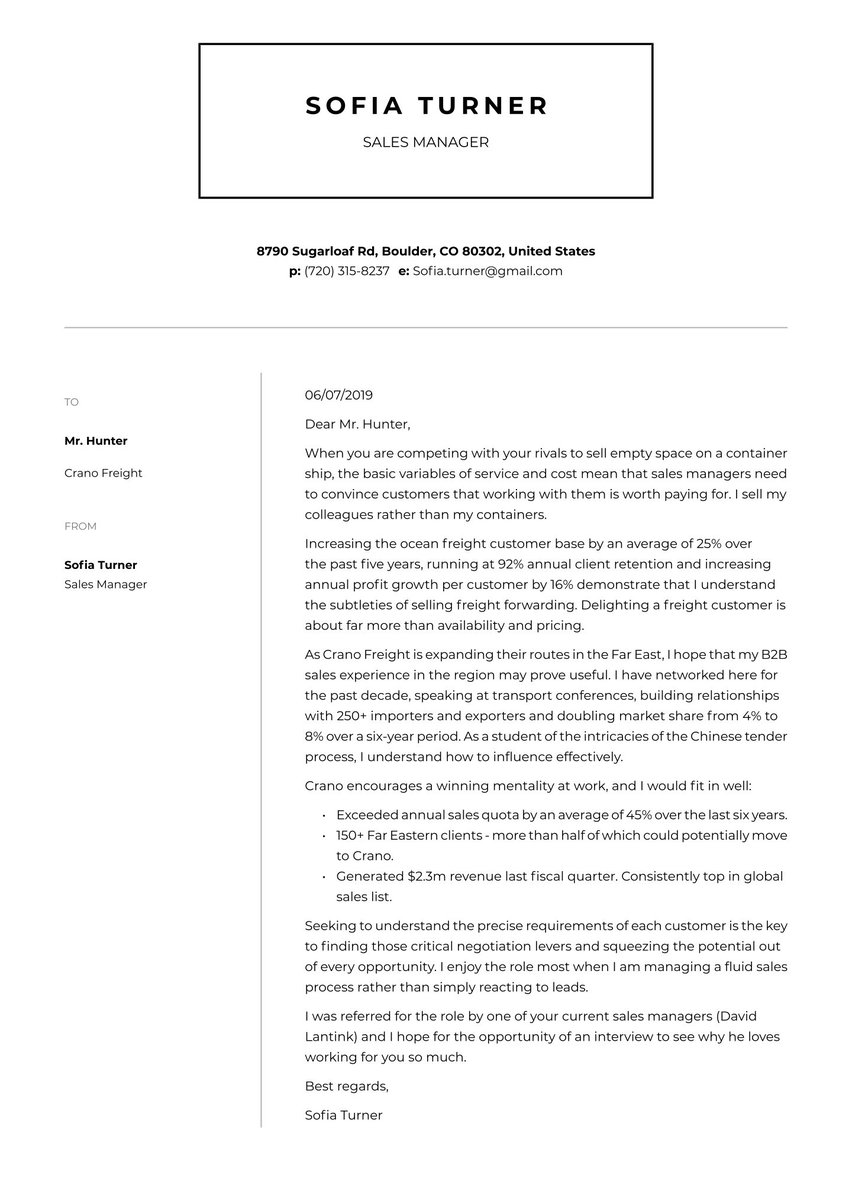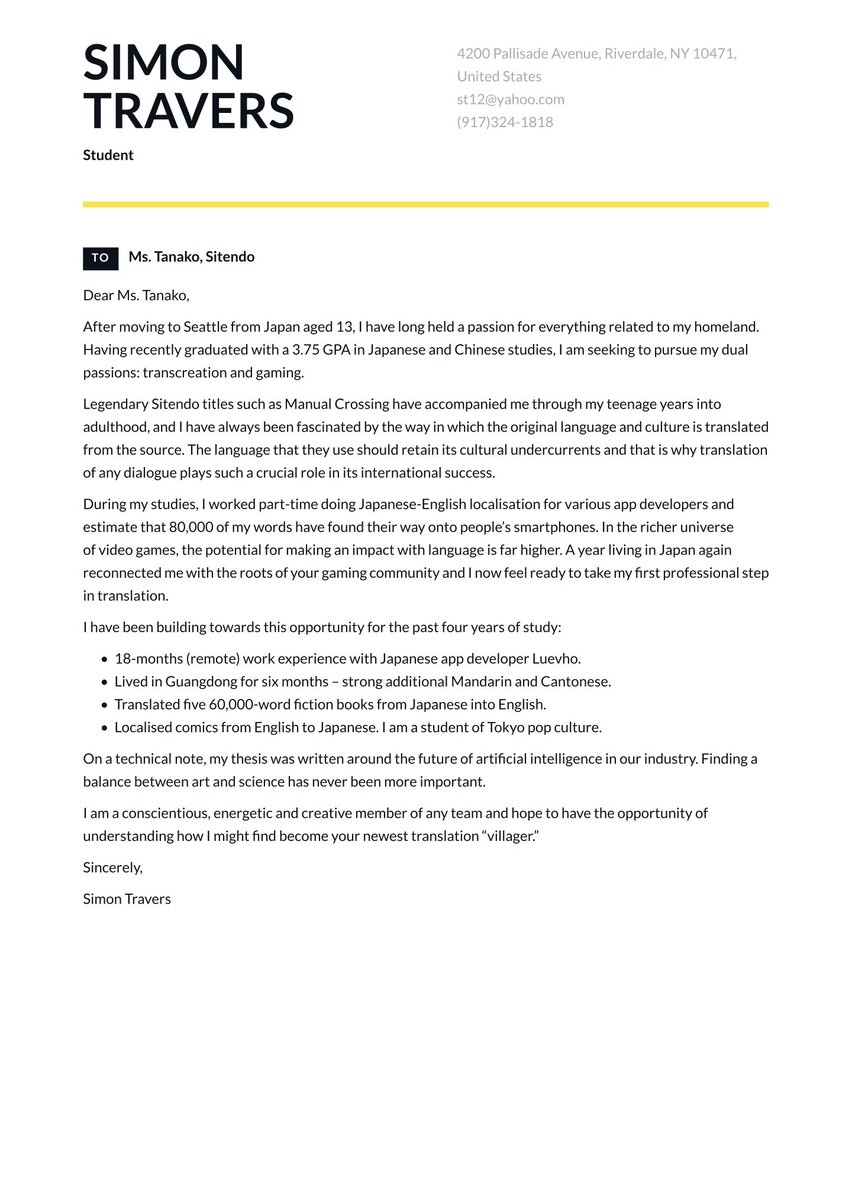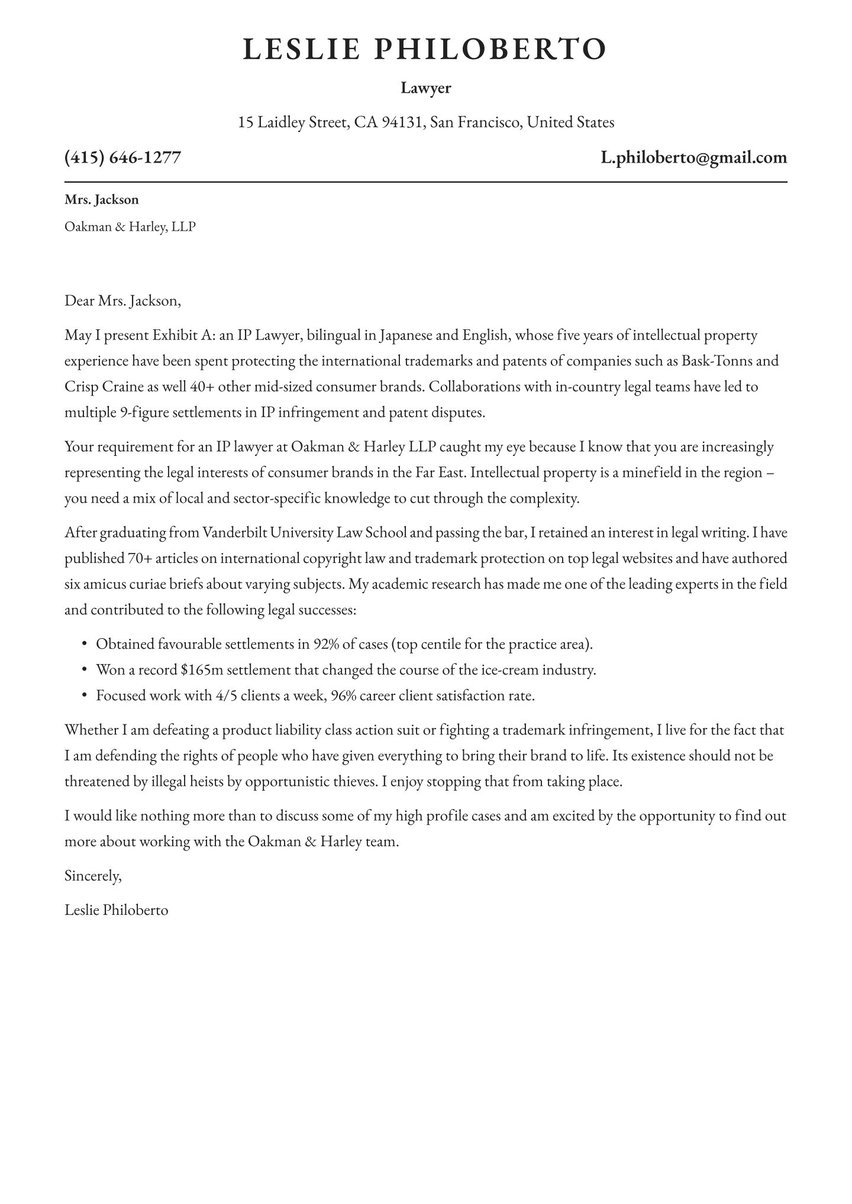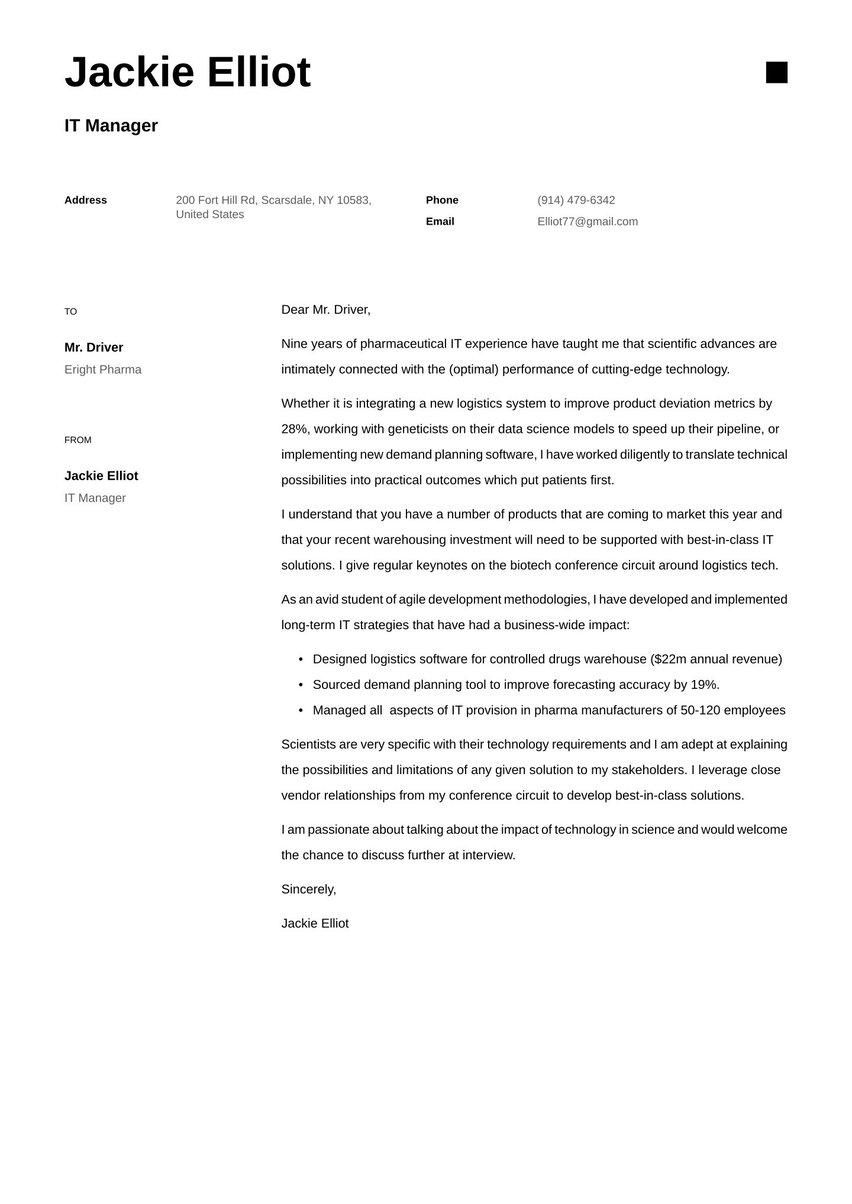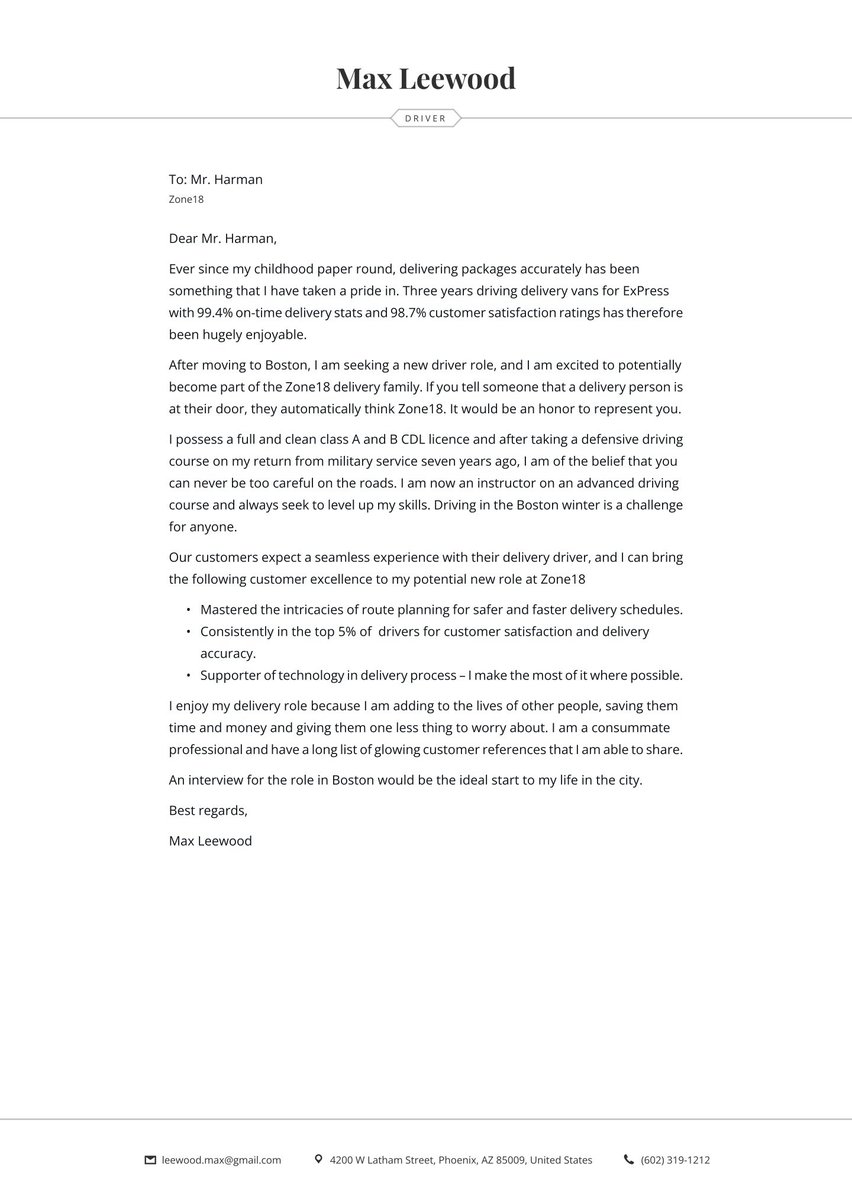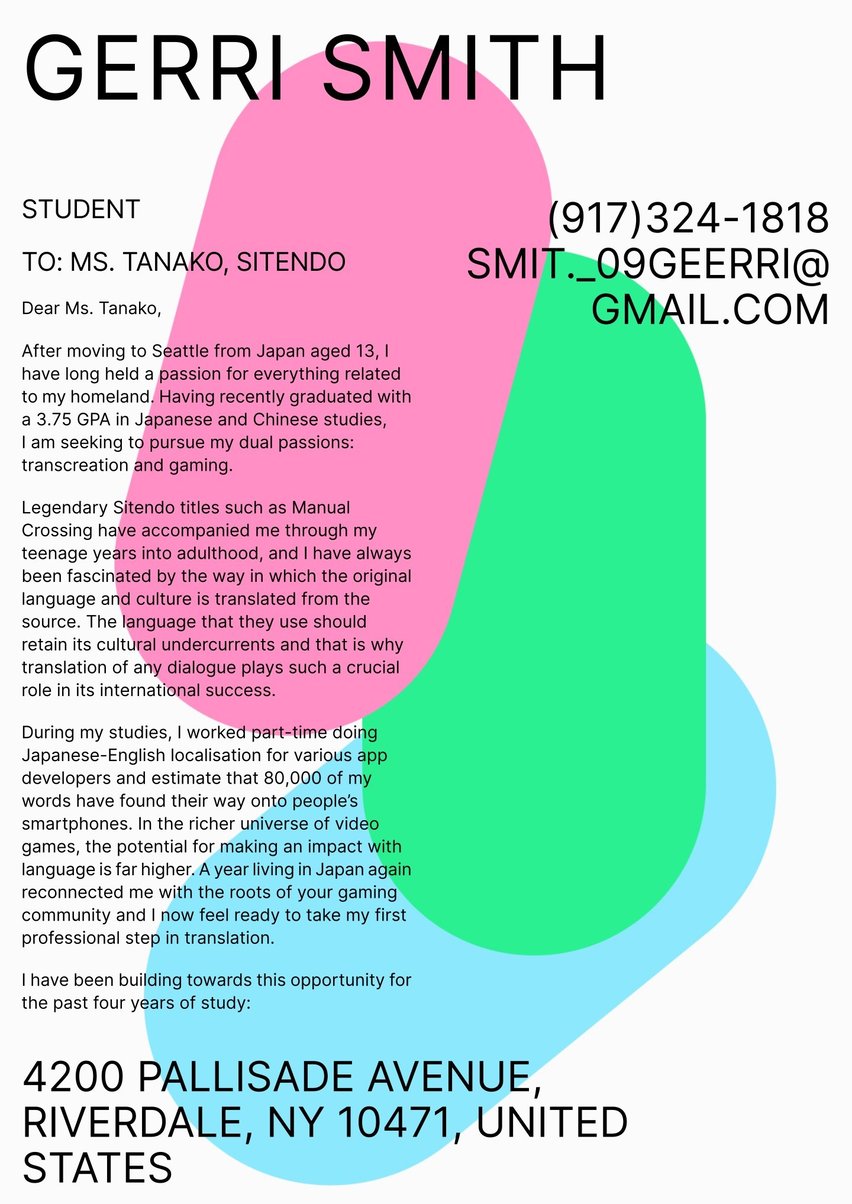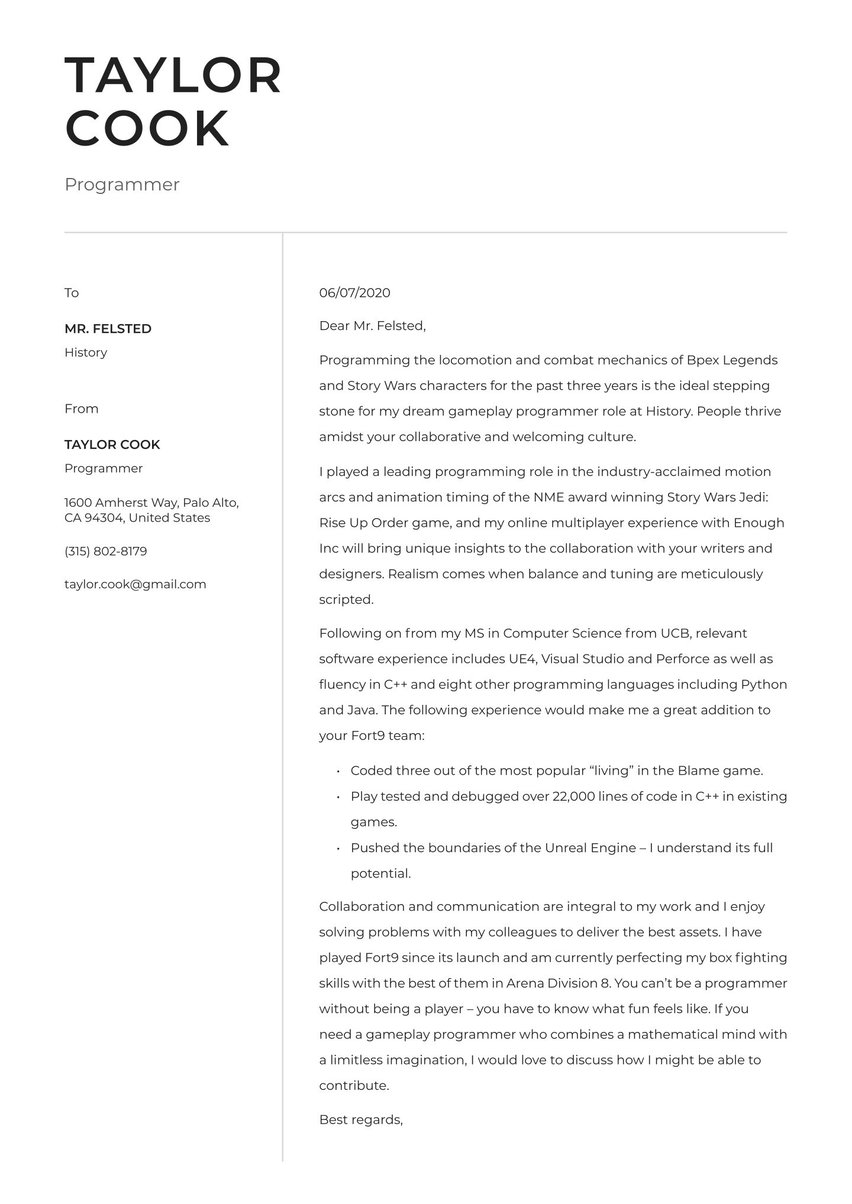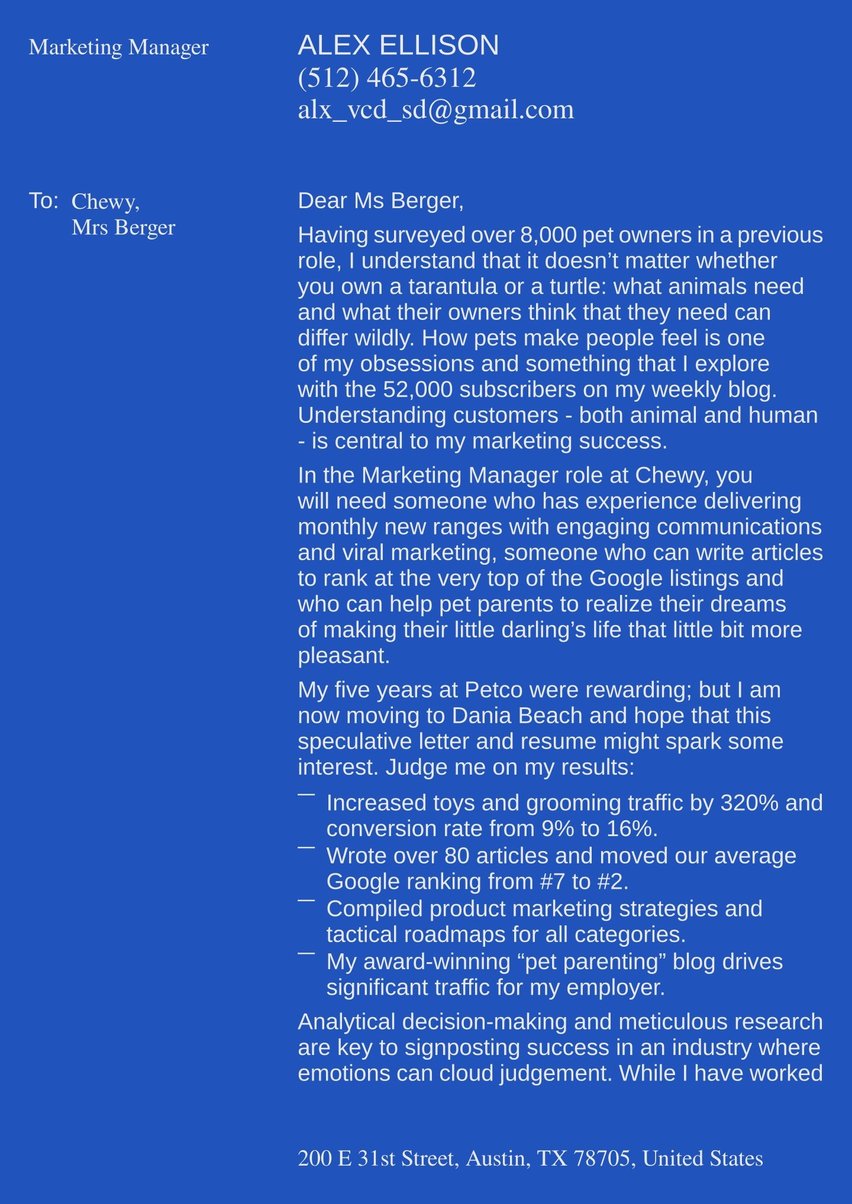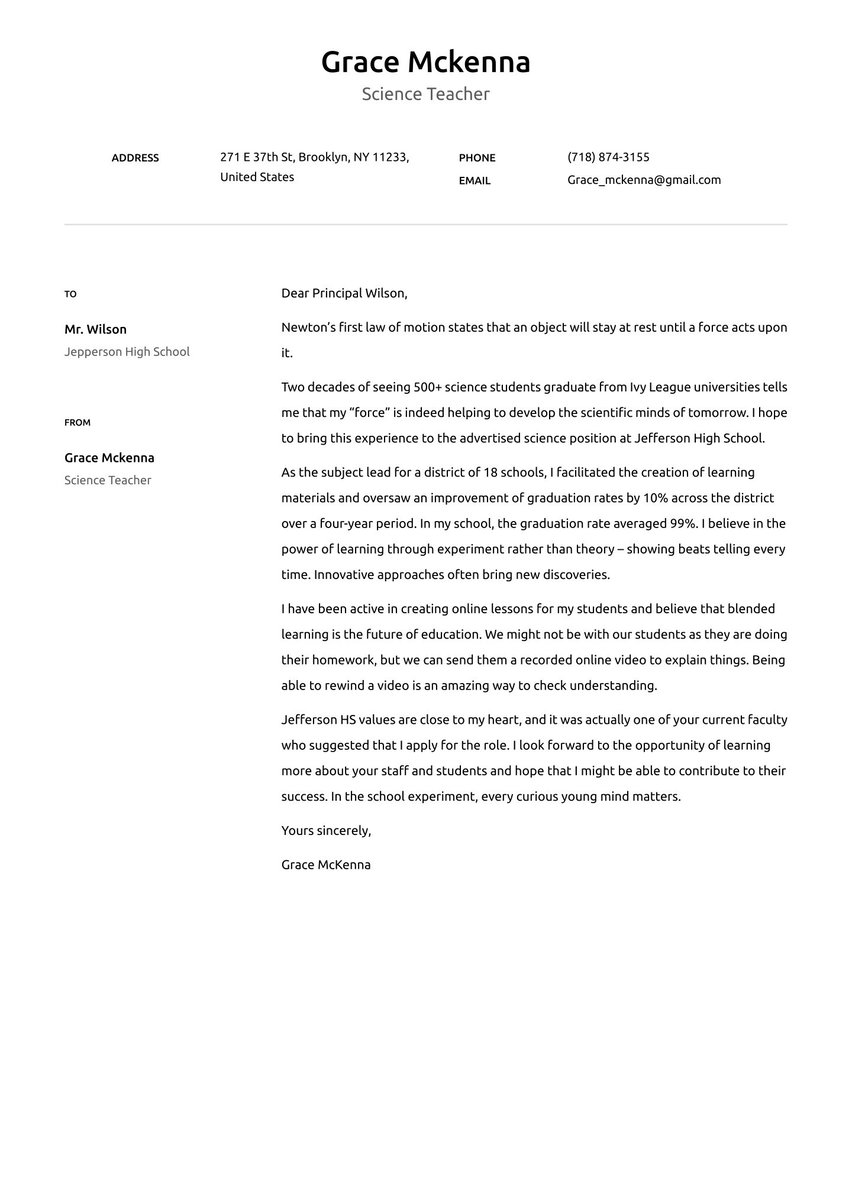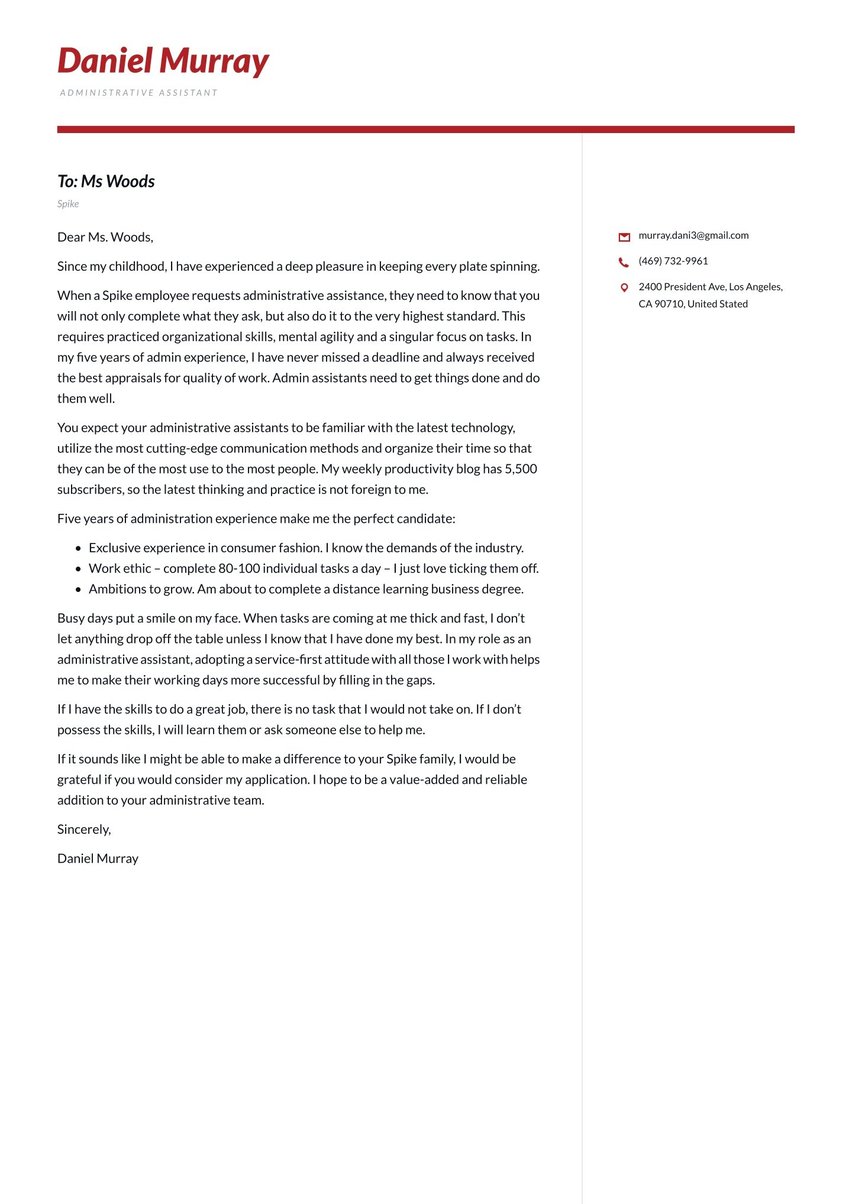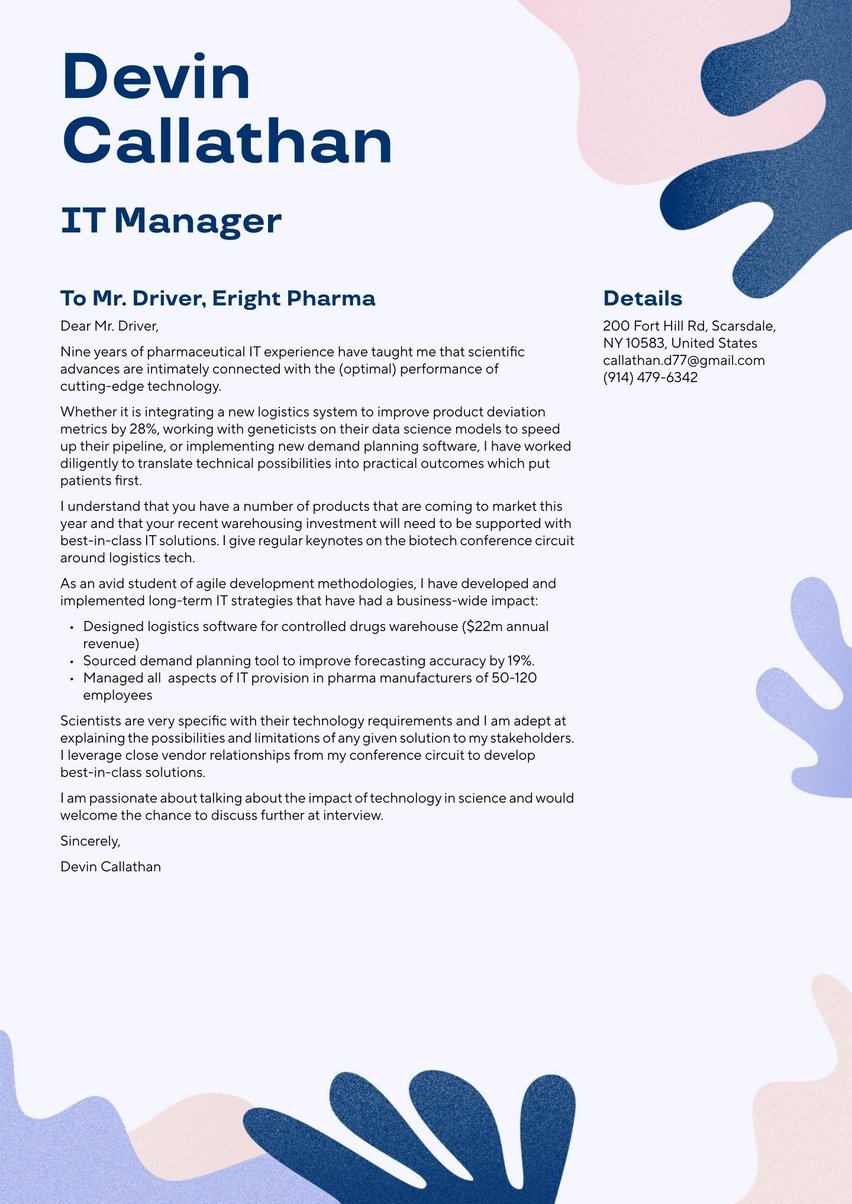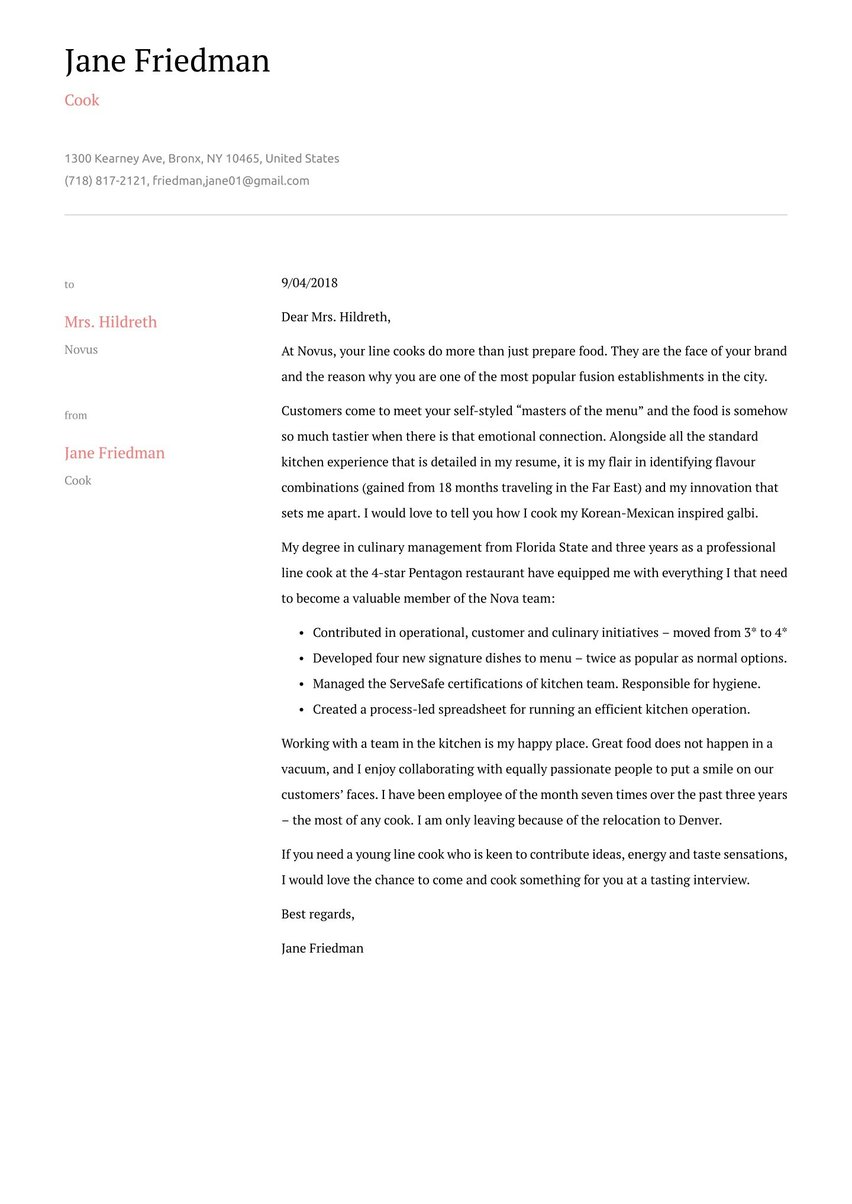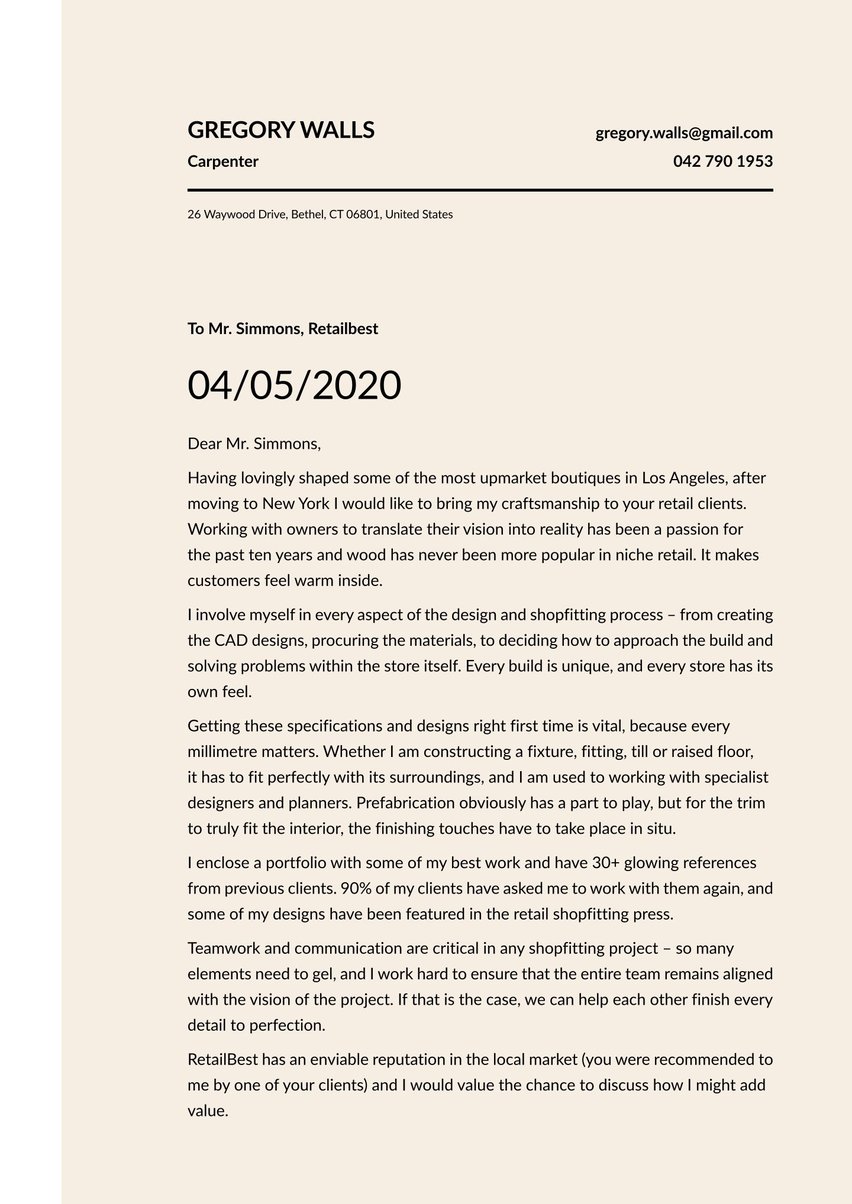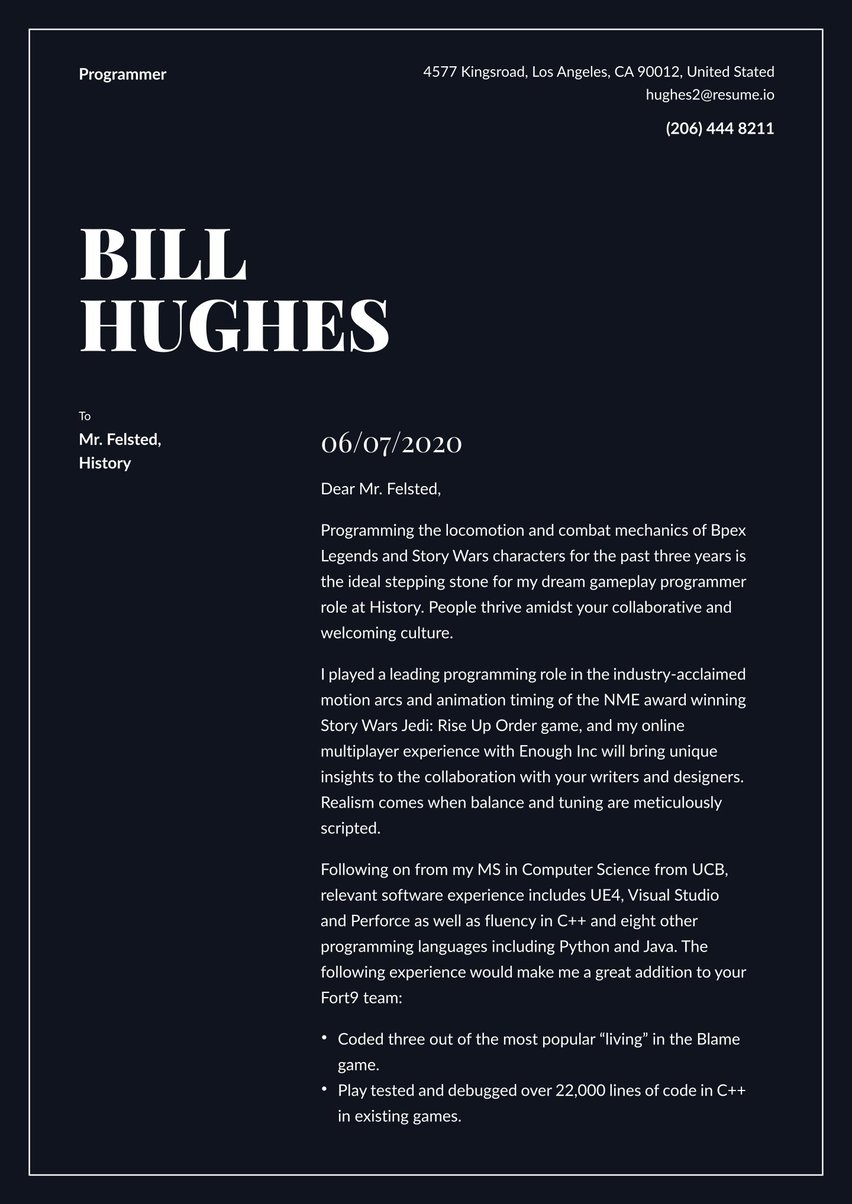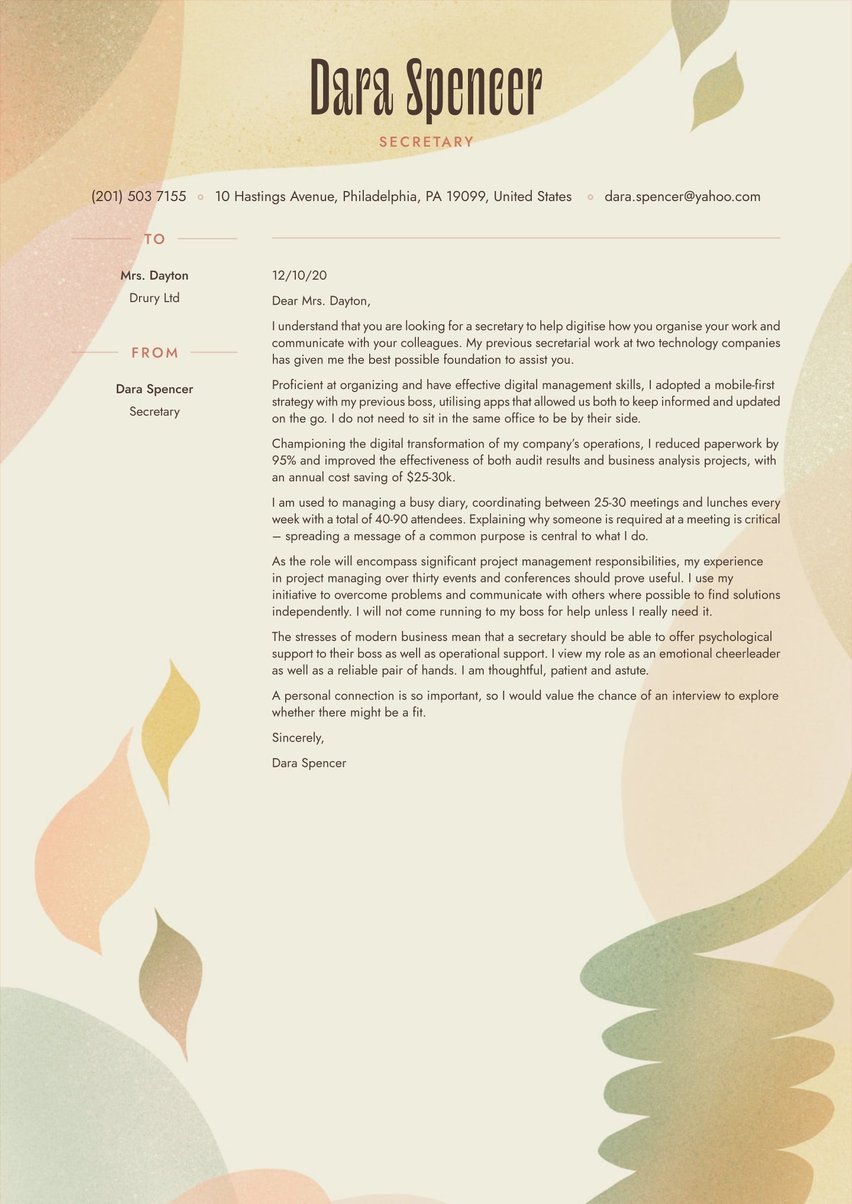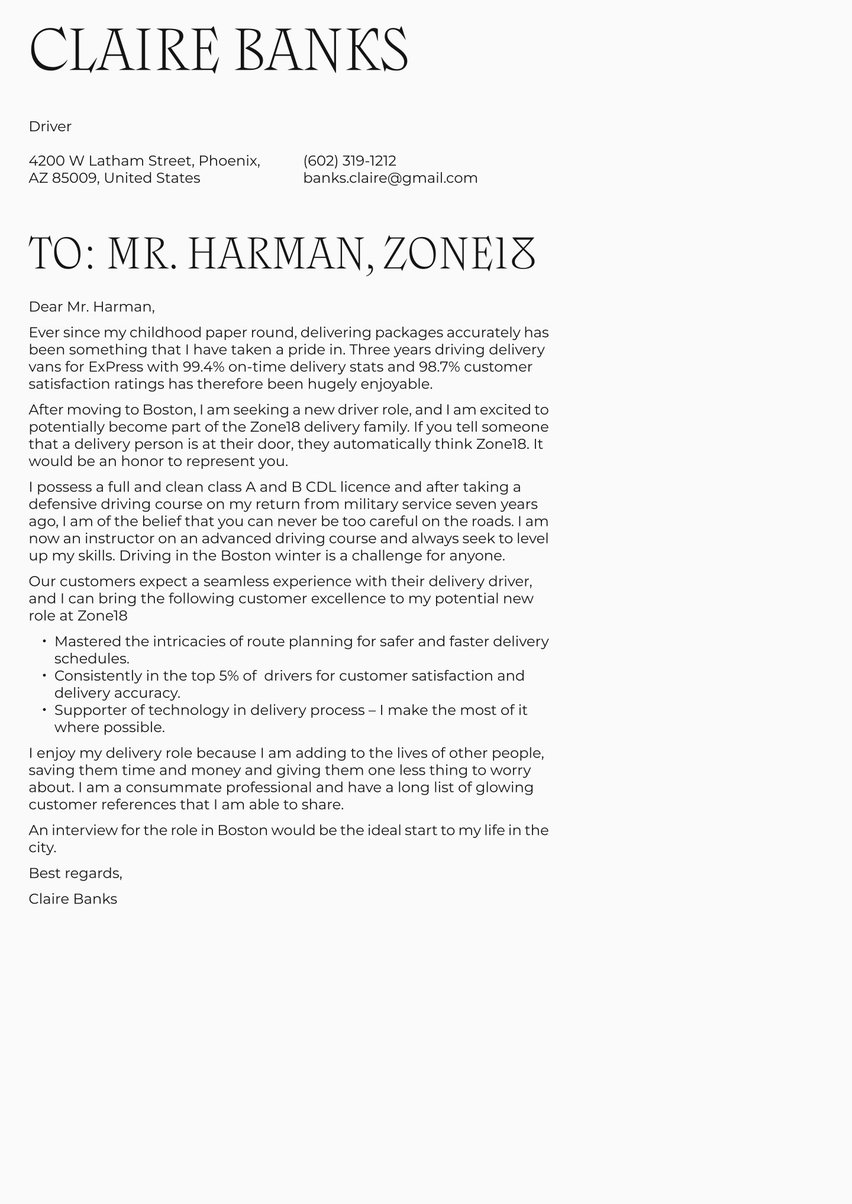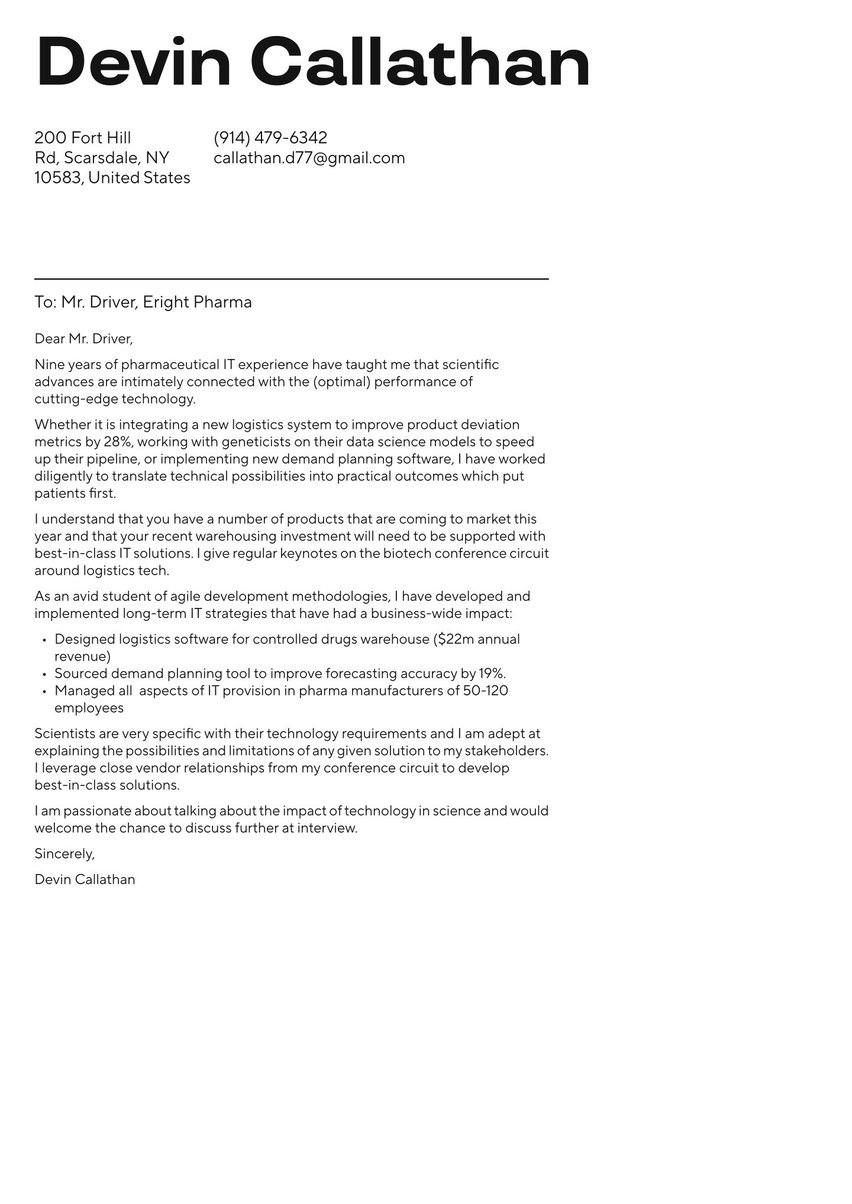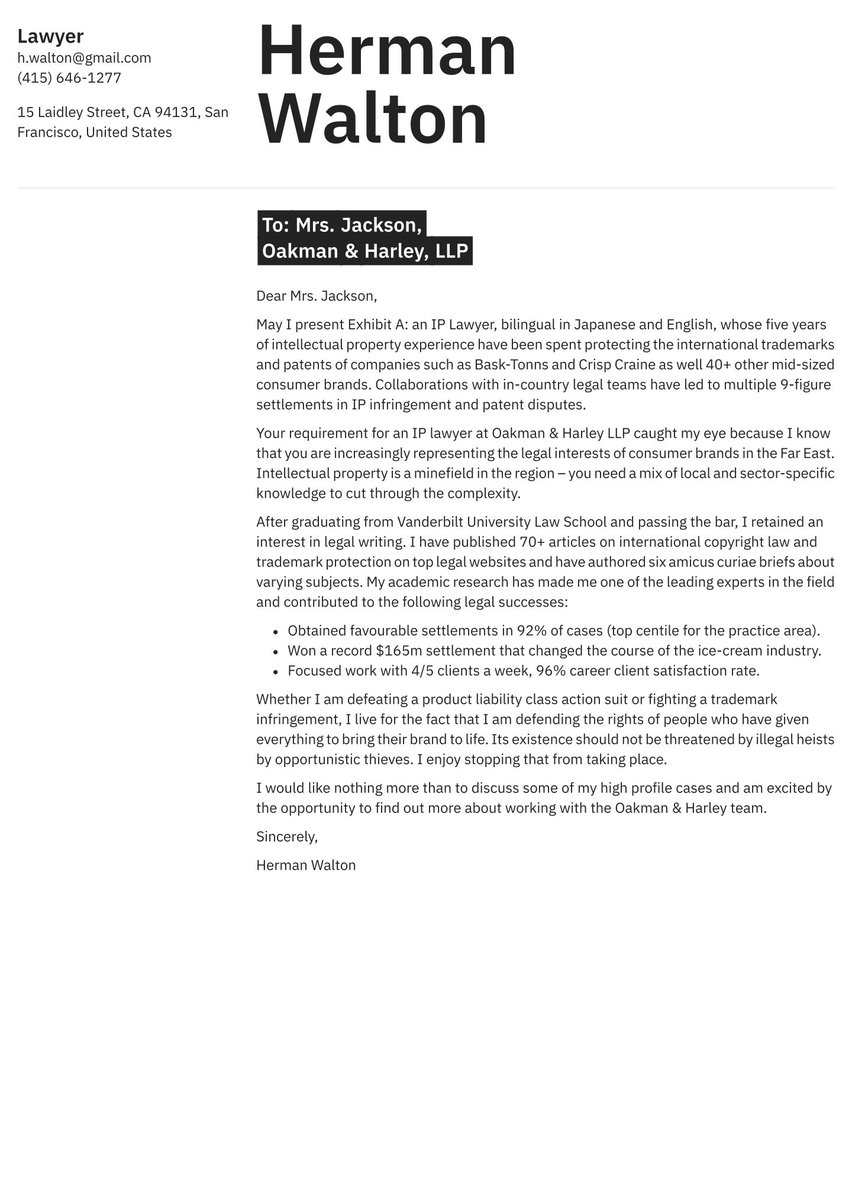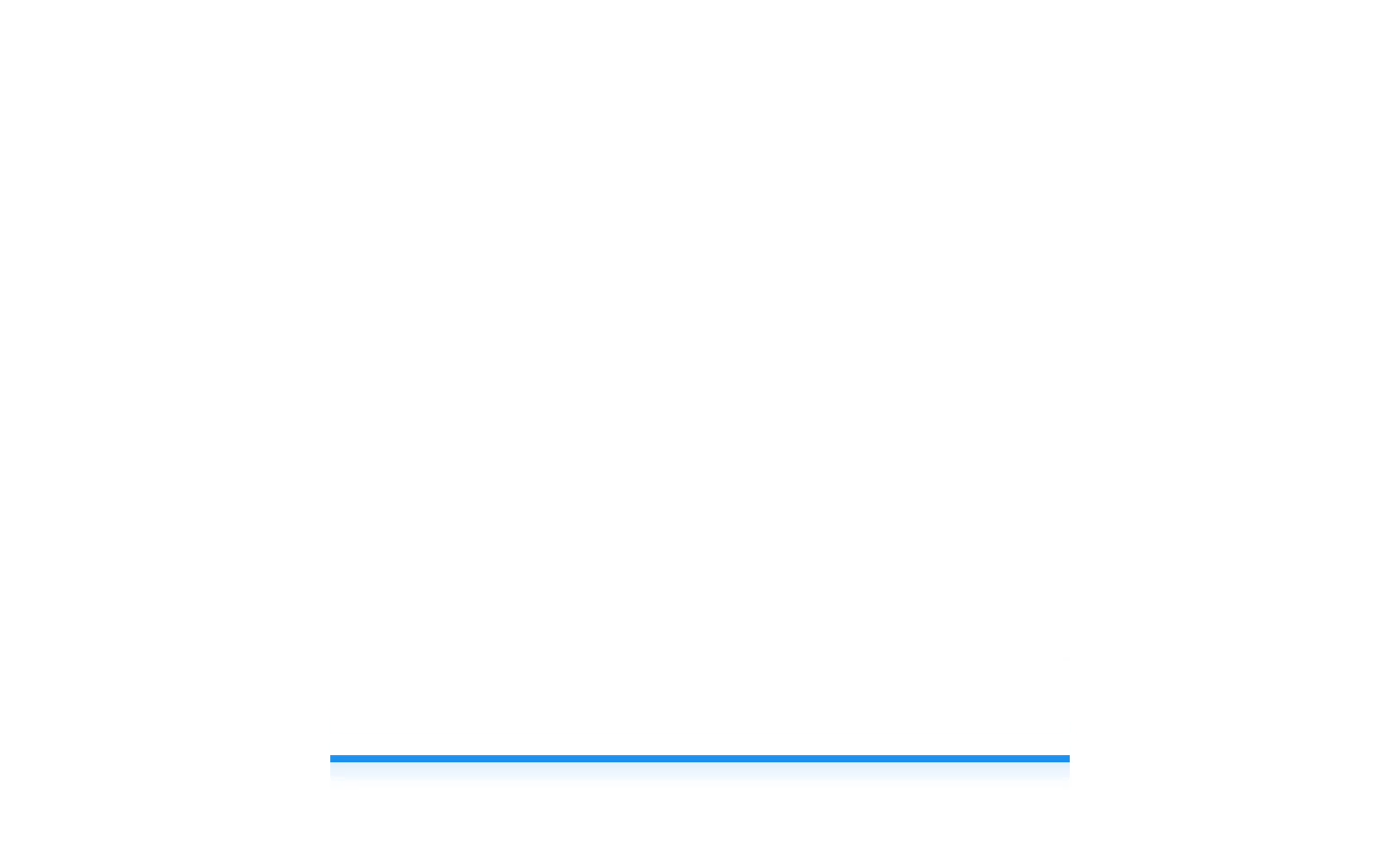As a welder, you understand how critical your skills are to most people’s daily lives. From building to repairing, from machines to modern structures. You quite literally help to join the mechanisms that make our world go around. But to leave your mark on your next welding position, you’ll need a welding cover letter to match.
Writing a strong cover letter doesn’t come naturally to everyone. Luckily for you, you’ve likely got great attention to detail thanks to your experience in welding. That already sets you on a strong foundation to leverage your skills into writing! We’re here to help you write a welding cover letter that sparks the hiring manager’s interest and ultimately convinces them that you’re the welding professional for the job.
At Resume.io we’ve helped thousands of people to write cover letters that set them apart from other candidates. We’ll help you to get clear on what makes you a great fit for the job you’re applying to and to communicate that with some top-tier cover letter writing. If you need a further spark of inspiration, check out the hundreds of other cover letter examples in our library.
In this cover letter guide, along with the corresponding welding cover letter example, we’ll cover the following topics:
- How to choose the best cover letter format and what paragraphs the cover letter should include
- How to maximize the effect of each cover letter paragraph (header, greeting, intro, body, and conclusion)
- What approach to take when writing your cover letter
- What mistakes to avoid when writing your librarian cover letter
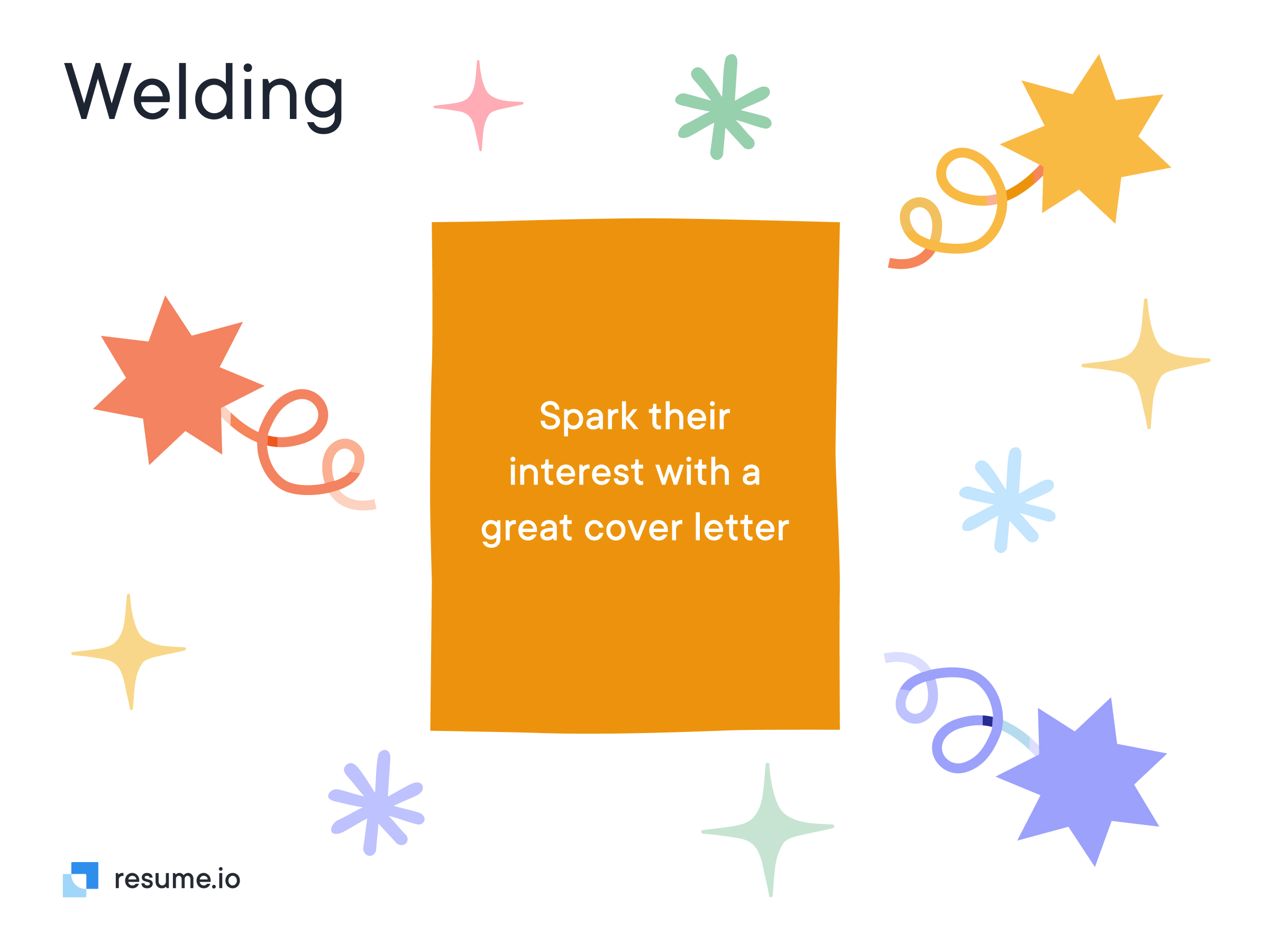
Best format for a welding cover letter
A strong welding cover letter makes an impression for all the right reasons. The format of a welding cover letter should contain the following elements:
- The cover letter header
- The greeting/salutation
- The cover letter intro
- The middle paragraphs (body of the letter)
- The ending paragraph of your cover letter (conclusion and call-to-action)
Of course, the content of your welding cover letter needs to be top-notch. The rest of this guide will focus on how to nail that aspect. However, one of the best ways you can set yourself apart more generally is with a professional and confident writing tone. The trick is to maintain a balance between formal and friendly, while not appearing arrogant.
Re: Welding role
Dear Mr. Sparks,
As a welder in the first years of my career in the manufacturing and construction industries, I hope to move to a company with a focus on training and development. I am passionate about using the latest technologies and look forward to working on challenging projects.
I already have experience with various welding processes including GMAW, GTAW, and SMAW, and am adept at reading and interpreting blueprints and meeting stringent quality standards. I hold a Welder's Certificate from the American Welding Society and have extensive experience with both manual and semi-automatic welding.
I have participated in several large-scale projects, including a 200,000 sq. ft. manufacturing facility where we successfully met strict quality standards. I enjoy working in teams with a variety of people and am always hungry to learn from those with more experience.
While I was still an apprentice, I worked with my boss to develop a new welding technique that improved the weld quality by 20% and reduced reworks. I am not afraid to embrace new processes, although I realize that much of what we do is down to individual skills. My previous employer implemented Six Sigma processes with all clients – I found myself thriving in such a structured environment.
Please find enclosed a portfolio of my work for your perusal – I take pride in my welding.
I look forward to potentially meeting for an interview and trial weld to show what I can do. Huck Jenkins recommended me for the role as we have worked together previously.
Sincerely,
Steve Rickshall
Strong action verbs
There’s a trick to reflecting your approach to welding through your writing. A great place to start is by using strong and descriptive action verbs when possible.
For instance, consider some of the following language to describe day-to-day tasks in your welding job:
- Maintained
- Operated
- Tested
- Supervised
- Constructed
- Inspected
We have even developed a whole list of powerful action verbs for your job application.
If you’re looking for additional inspiration, you can check out our related cover letter examples:
Cover letter header
At the very top of your cover letter, the hiring manager should be able to see your name and contact details. Functionally, it means they can also call you at a moment’s notice. Hopefully, your cover letter will be so moving that they will be compelled to call you right away.
In addition, a strong cover letter header helps you to stick in the hiring manager’s mind. A well-crafted header highlights your attention to detail and professionalism. These are must-haves for welding professionals.
How much do welders earn?
Welders, cutters, solders, and brazers received a median annual wage of $47,010 in May 2021, according to the Bureau of Labor Statistics.
Cover letter greeting
In the cover letter greeting you address the hiring manager for the first time. Address them directly by including their name, like in the cover letter sample content below. Generic salutations like "To Whom It May Concern" won’t make the same personal connection and could come across as lazy.
Taking the time to spend a few extra minutes working out who is likely to be doing the hiring on LinkedIn or the company website is just another way to set yourself apart. Hiring managers go through a lot of trouble to find the right person for a job who is likely to stay for a significant amount of time. Look out for details like this that prove you’ve got the proactive attitude that makes you a smart hire. You’ll be making the hiring decision much easier for everyone involved.
Cover letter introduction
In the opening paragraph, summarize why your profile is intriguing for the specific job opening. Highlight any relevant experience, certifications, or welding specialties that make you a strong fit for the position.
You can convey your enthusiasm and passion for the welding industry through strong action verbs. Welders are present across a variety of industries. Your work might serve civilians, scientists, or the military. Whatever your experience as a welder, make sure you mention it within the first few sentences.
A good approach is to use the cover letter introduction as your opportunity to set the stage for the rest of your welding cover letter’s content. It may be a good idea to write it last, as it can act as a short summary of the skills and experience that you elaborate on throughout the rest of your cover letter.
Dear Mr. Sparks,
As a welder in the first years of my career in the manufacturing and construction industries, I hope to move to a company with a focus on training and development. I am passionate about using the latest technologies and look forward to working on challenging projects.
Certifications obtained with the American Welding Society, a non-profit organization founded in 1919, are highly respected in the field. Make sure to mention any that you possess early on in your cover letter!
Cover letter middle part (body)
The middle paragraphs of cover letters are there to align your best achievements and skills with the job description. Choose a couple of anecdotes that best illustrate your value as a welder for this job. Cover letters should be super personalized to the specific role.
You can do this by scanning the job description and identifying the skills, responsibilities, or characteristics that are highlighted in the job description. Take a look at the cover letter example content below for some inspiration.
Here are some questions you can ask yourself when deciding on which examples you will include in your welding cover letter:
- When and where have you most successfully demonstrated your relevant welding expertise?
- What was a time that you alone demonstrated excellent problem-solving abilities, and attention to detail, or another skill that the job description calls for?
- Can you quantify your achievement to make your value tangible and measurable?
Once you have chosen what you want to talk about in your cover letter, it’s time to consider how to write it. Try to focus on just a couple of anecdotes or stats that illustrate your value as a welder. Next, utilize the STAR method (Situation, Task, Action, Result) to tell a concise story of why your chosen anecdotes or stats are relevant to the job at hand.
The harder you work to paint a picture for the hiring manager of why you are a qualified professional for the job, the less work they have to do to envisage you in the position.
I already have experience with various welding processes including GMAW, GTAW, and SMAW, and am adept at reading and interpreting blueprints and meeting stringent quality standards. I hold a Welder's Certificate from the American Welding Society and have extensive experience with both manual and semi-automatic welding.
I have participated in several large-scale projects, including a 200,000 sq. ft. manufacturing facility where we successfully met strict quality standards. I enjoy working in teams with a variety of people and am always hungry to learn from those with more experience.
While I was still an apprentice, I worked with my boss to develop a new welding technique that improved the weld quality by 20% and reduced reworks. I am not afraid to embrace new processes, although I realize that much of what we do is down to individual skills. My previous employer implemented Six Sigma processes with all clients – I found myself thriving in such a structured environment.
Please find enclosed a portfolio of my work for your perusal – I take pride in my welding.
Quantify your achievements
If you can attach a statistic or number to your achievement, you will help the hiring manager to visualize the value you can bring to the team. Not only will you show an understanding of the metrics that matter to them, but you will provide some evidence that you can contribute to similar metrics again in the future.
How to close a welding cover letter (conclusion and sign-off)
In the closing paragraph, it’s time to wrap up the welding story you’ve taken the hiring manager on. Reemphasize your interest in the position. Finally, express your eagerness to discuss your qualifications further in an interview.
You should have piqued the hiring manager’s curiosity enough in the cover letter body for them to be interested in taking you up on your offer and speaking further. After all, that is your overall goal when writing your cover letter.
Sign off with a professional closing, such as "Sincerely." Remember to proofread your letter and ensure that it is error-free and polished.
I look forward to potentially meeting for an interview and trial weld to show what I can do. Huck Jenkins recommended me for the role as we have worked together previously.
Sincerely,
Steve Rickshall
It’s who you know
Word of mouth is a powerful tool. If you have a good reference from a previous job, don’t be afraid to include this in the body of your cover letter or just before you sign off.
Welding cover letter with no experience
If you're applying for your first welding job, you still have the chance to showcase your potential. Highlighting relevant coursework and unpaid experience is important. However, highlighting transferable skills like dexterity, good vision, and physical fitness is useful, too.
If you worked in construction, you may have experience with blueprints, measurements, and power tools. This will be useful for a hiring manager to know if they are considering taking a chance on you as a junior welder on their team.
You could even demonstrate your passion for welding by discussing your personal projects. Did you build your own metal sculpture or repair equipment for a friend? This shows that you have a genuine interest in welding beyond simply getting a paycheck.
Your first impression
First impressions count. Make sure that your cover looks the part by paying attention to the following:
- Clear spacing
- Legible font
- Simple color scheme
While training and understanding the necessary safety measures are crucial in welding, a lack of experience isn’t an automatic no. Many employers are willing to provide or finance training. Plus, hiring managers are often more likely to invest in hiring an enthusiastic newbie rather than someone with a few more years of experience who gives the impression that they might leave soon. Take a look at the cover letter sample for ideas on how to communicate your enthusiasm through your writing.
Key takeaways
- Your welding cover letter should include a header, greeting, intro, body, and conclusion.
- Use strong action verbs to reflect your approach to welding through your writing.
- The body of your welding cover letter needs to align your achievements and skills with this particular job description.
- Make sure your writing is confident without appearing arrogant.
Hopefully, we’ve sparked your creativity so you feel empowered to commit your professional welding career story to paper. Don’t forget that we have ready-made cover letter templates if you are ready to start writing.
If you’re looking for additional inspiration, you can check out our related cover letter examples:


